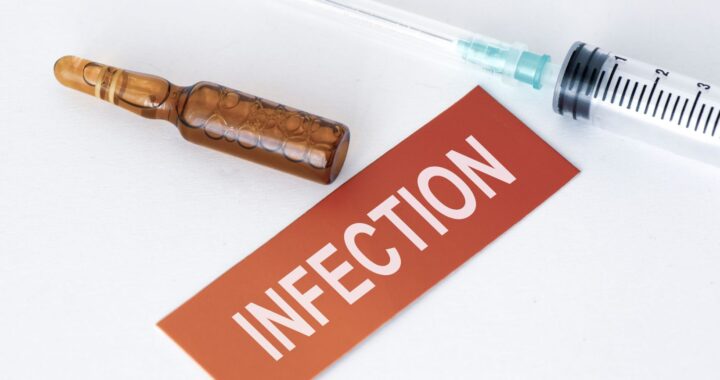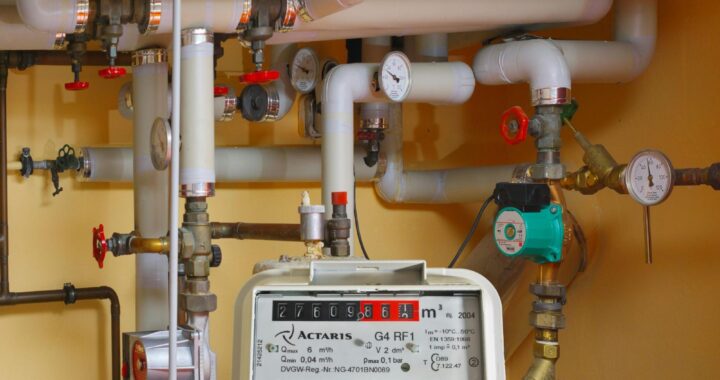Addressing the Complex Health Needs of Camp Lejeune Water Contamination Survivors

Consider this scenario: every day, you wake up knowing your health has been permanently impacted by contaminated water at Camp Lejeune. You’re not alone in this fight, as many veterans face similar challenges. The healthcare journey is often filled with obstacles and frustrations, but there is support, help, and hope available.
You must understand firsthand the difficulties of managing chronic illnesses, finding specialized care, and dealing with the mental and emotional toll. Legal and financial complexities add another layer of burden.
In this blog, we’ll explore the healthcare challenges Camp Lejeune water contamination survivors face.
Managing Chronic Illness
For many who lived at Camp Lejeune, the contaminated water has left a lasting impact on their health. Chronic illnesses like cancer, Parkinson’s disease, and autoimmune disorders have become a constant challenge.
A study published in BioMed Central highlighted these struggles in 3 different patients. One participant, a 37-year-old man, battles T lymphoblastic leukemia and its debilitating fatigue and muscle aches. The second patient, a Caucasian man, confronted a formidable health challenge. Diagnosed with multiple cancers – prostate, lung, and colon – he also battled chronic lymphocytic leukemia.
The third patient endured a relentless battle with recurring skin cancers. These cancers varied in type, encompassing basal cell carcinomas, squamous cell carcinomas, and melanoma. These stories showcase the fight and resilience required to manage these conditions.
Taking charge of your healthcare is crucial. Regular checkups, specialized treatments, and close monitoring for any changes are vital. Remember, this journey takes a toll on both your body and mind.
While chronic illness can be daunting, you don’t have to face it alone. Many others share similar experiences. Arm yourself with knowledge, actively participate in your treatment, and connect with a support network. It empowers you to navigate chronic health challenges and pursue a life filled with well-being.
Finding the Right Care
Accessing specialized care is crucial for those impacted by Camp Lejeune’s contaminated water. Their health battles often demand a tailored approach from experienced professionals. It translates to seeking doctors who are well-versed in the specific diseases and symptoms linked to Camp Lejeune exposure.
The spectrum of illnesses caused by the contamination is vast. It can include various cancers, neurological problems, fertility issues in women, autoimmune diseases like scleroderma, and kidney damage.
However, finding the right specialist can be an uphill climb. The limited availability of experts in certain areas and the complexity of these conditions create a significant obstacle. Additionally, the financial strain of specialized care can be substantial, especially for individuals with limited or no insurance.
Alarmingly, TorHoerman Law suggests Camp Lejeune veterans faced a 70% increased risk of developing Parkinson’s disease (PD). PD is a progressive neurodegenerative disorder. It starts with subtle tremors and difficulties with movement but can eventually lead to significant challenges with walking, talking, and sleeping. It can also bring on mental health struggles like depression, fatigue, memory lapses, and behavioral changes.
The good news is that the VA now recognizes Parkinson’s disease as a covered condition under the Camp Lejeune Family Member Program. This means veterans and eligible family members with PD can apply for VA assistance.
However, another route exists for civilians not eligible for VA benefits – filing a Camp Lejeune water contamination lawsuit. It can help them seek financial assistance through the Camp Lejeune Parkinson’s settlement amounts. With the deadline for such lawsuits approaching in August 2024, seeking legal guidance is crucial for civilians to explore their options.
The Emotional Toll: Why Mental Health Support Matters
Living with severe health conditions, especially various cancers, wears heavily on a person’s mental well-being. Diagnoses like these can be a heavy burden, triggering a rollercoaster of emotions – fear, uncertainty, and everything in between. This impact is even more pronounced for those facing multiple cancers over time. Imagine a man battling prostate cancer, lung cancer, and chronic lymphocytic leukemia – the emotional weight is immense.
The seriousness of their situation demands acknowledging the significant mental strain these individuals face. Chronic illnesses have a profound emotional impact, affecting daily life and overall well-being. For survivors of Camp Lejeune water contamination, mental health support becomes an essential part of comprehensive care.
Seeking mental health services isn’t a sign of weakness; it’s a path towards strength and resilience. By working with mental health professionals, survivors can acquire valuable tools and coping mechanisms to navigate the emotional complexities of living with chronic illness.
Path to Justice: Legal and Financial Hurdles
The fight for justice for Camp Lejeune water contamination victims involves legal and financial complexities. The Lawsuit Information Center reports a vast disparity between claims and settlements. As of March 2024, over 176,000 administrative claims were filed with the Navy. However, only 1,662 lawsuits have been pursued under the Camp Lejeune Justice Act.
Settlements remain scarce compared to the number of affected individuals. While some progress has been made with eight Navy settlements and eighteen DOJ settlements totaling $5.95 million. The pace is understandably frustrating for victims, falling short of Congressional intent.
These legal proceedings are no easy feat. Navigating intricate legal battles with government agencies, the military, and healthcare providers often requires experienced legal counsel. The pursuit of justice comes at a steep financial cost. Legal fees, court expenses, and securing expert witnesses can quickly drain resources, adding another burden to an already overwhelming healthcare journey.
Despite these significant obstacles, many victims remain resolute in their pursuit of accountability and compensation for their health struggles. Their legal and financial hurdles represent one more difficulty on a path paved with healthcare challenges.
Community Resources for Camp Lejeune Survivors
The healthcare journey for Camp Lejeune water contamination victims is complex. It’s filled with challenges such as managing chronic illnesses, finding specialized care, and coping with the emotional impact. Fortunately, a network of community resources exists to offer much-needed support.
These resources, including community organizations, support groups, and local healthcare providers, act as a lifeline for victims navigating the complexities of chronic illness. They can help bridge the gap to specialized care, offer emotional support, and provide valuable information about available services and programs.
Beyond healthcare access, community resources foster a sense of unity among affected individuals. Shared experiences and supportive networks create a space for resilience and strength. This sense of belonging and solidarity empowers victims to face their healthcare challenges with greater determination and hope.
Frequently Asked Questions
What are the Most Common Health Conditions Associated with Camp Lejeune Water Contamination?
Camp Lejeune water contamination has been linked to numerous health issues. These include various cancers, such as adult leukemia, kidney cancer, and bladder cancer, as well as Parkinson’s disease, miscarriages, and birth defects.
What Steps do I Need to Take to Apply for VA Benefits?
Applying for VA benefits involves gathering documents like discharge papers and medical records. You can apply online through the VA website or in person at a regional office. There’s also the option to mail in a paper application. Remember, it’s best to get help from the VA to ensure a smooth application process.
Can I Get Financial Help for Medical Bills from Camp Lejeune Water Contamination?
Yes, financial help may be available for medical bills if your illness is linked to Camp Lejeune water contamination. The VA offers healthcare and benefits for veterans who qualify. Depending on your situation, you might also be eligible for other programs. Consulting a lawyer or veterans’ service organization is recommended for specifics.
In conclusion, the healthcare journey for Camp Lejeune water contamination victims is undeniably complex. From managing chronic illnesses to securing specialized care and addressing the emotional toll, the obstacles can feel overwhelming. However, it’s important to remember that these challenges are not insurmountable.
By equipping yourself with knowledge about these challenges, you can embark on this path with greater strength and resilience. Remember, you don’t have to face legal and financial hurdles alone. Pursuing justice and accountability is an important part of your healthcare journey, and resources are available to help you navigate it.



 How Intermittent Fasting Affects Your Body and Brain
How Intermittent Fasting Affects Your Body and Brain  What Are Yeast Infections and Why Do They Happen?
What Are Yeast Infections and Why Do They Happen?  How to Ensure Effective Water Flow Control with External Water Shut-Off Valves
How to Ensure Effective Water Flow Control with External Water Shut-Off Valves  What Makes Dartmouth a Unique Inspiration for Interior Design
What Makes Dartmouth a Unique Inspiration for Interior Design  Send a Fax from Your Phone: How Fax Apps Are Changing the Way We Communicate
Send a Fax from Your Phone: How Fax Apps Are Changing the Way We Communicate  Age:Tikmbswmx6u= Lainey Wilson- Country Star’s Age and Journey to Nashville Stardom
Age:Tikmbswmx6u= Lainey Wilson- Country Star’s Age and Journey to Nashville Stardom